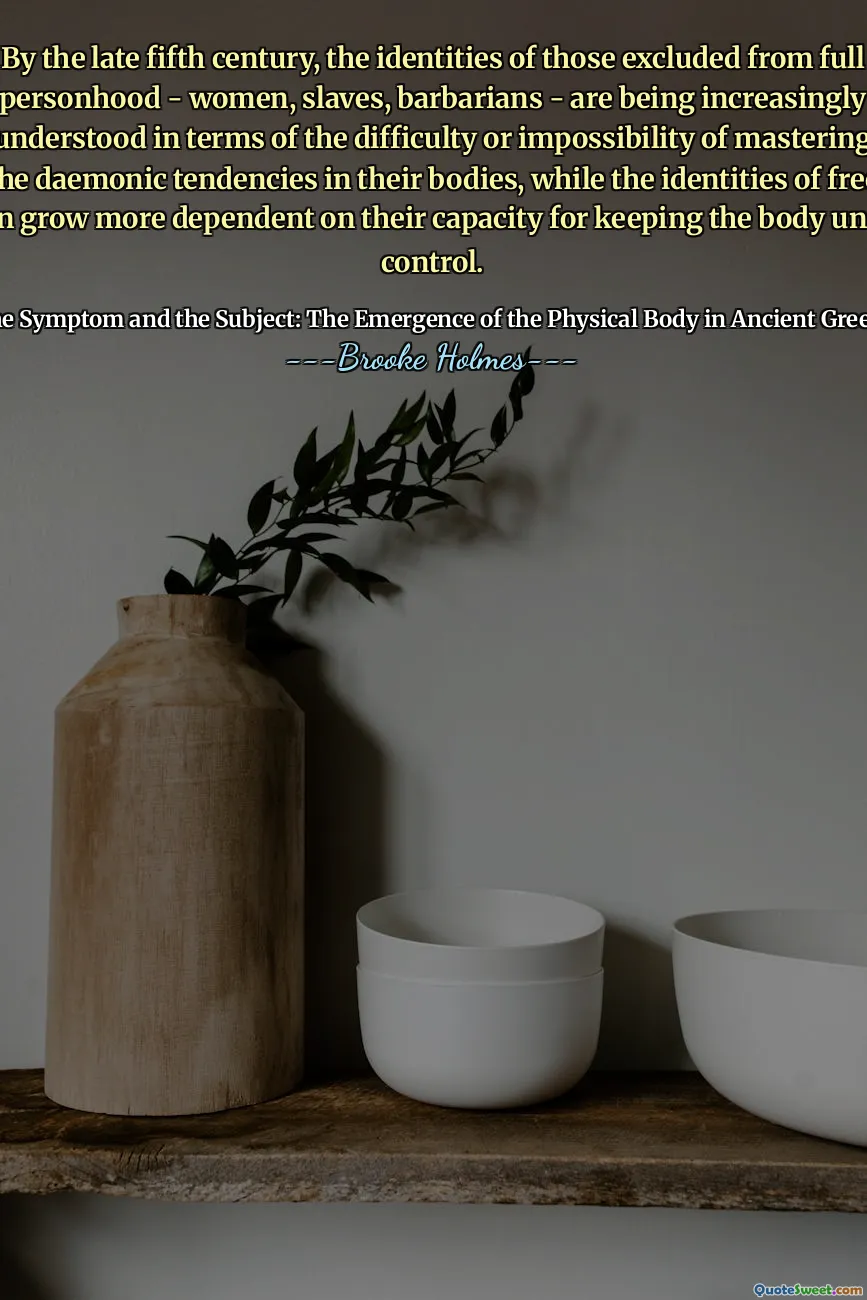
By the late fifth century, the identities of those excluded from full personhood - women, slaves, barbarians - are being increasingly understood in terms of the difficulty or impossibility of mastering the daemonic tendencies in their bodies, while the identities of free men grow more dependent on their capacity for keeping the body under control.
The quote from Brooke Holmes highlights a pivotal shift in ancient Greek conceptualizations of identity and personhood during the late fifth century. This period marks a crucial transformation in how societies understood the boundary between the civilized and the other, especially in relation to bodily control and innate tendencies. The passage suggests that marginalized groups—women, slaves, and barbarians—were increasingly perceived through a lens that linked their exclusion from full personhood to their perceived inability to contain what was termed 'daemonic tendencies.' These tendencies, perhaps encompassing passions, emotions, or innate impulsiveness, were seen as disruptive forces that threatened social order when uncontrolled. The body, thus, became a battleground for defining morality, rationality, and societal worth. On the other hand, free men’s identities were becoming contingent upon their mastery over their own bodies, emphasizing discipline and restraint as marks of civility and rational superiority. This dichotomy underscores how individual and collective identities were constructed not only through social and political means but also profoundly rooted in embodied discipline and control. Such notions fed into larger narratives about freedom and slavery, power and submission, and the binary between the rational and irrational. The emphasis on bodily regulation as integral to selfhood and social membership reveals the deep intertwining of physicality with moral and intellectual virtues in ancient philosophy. Ultimately, this shift laid foundational ideas that would influence later developments in notions of autonomy, sovereignty, and the ethics of self-control. The body, in this context, is not merely physical but emblematic of one's moral and social standing.**






